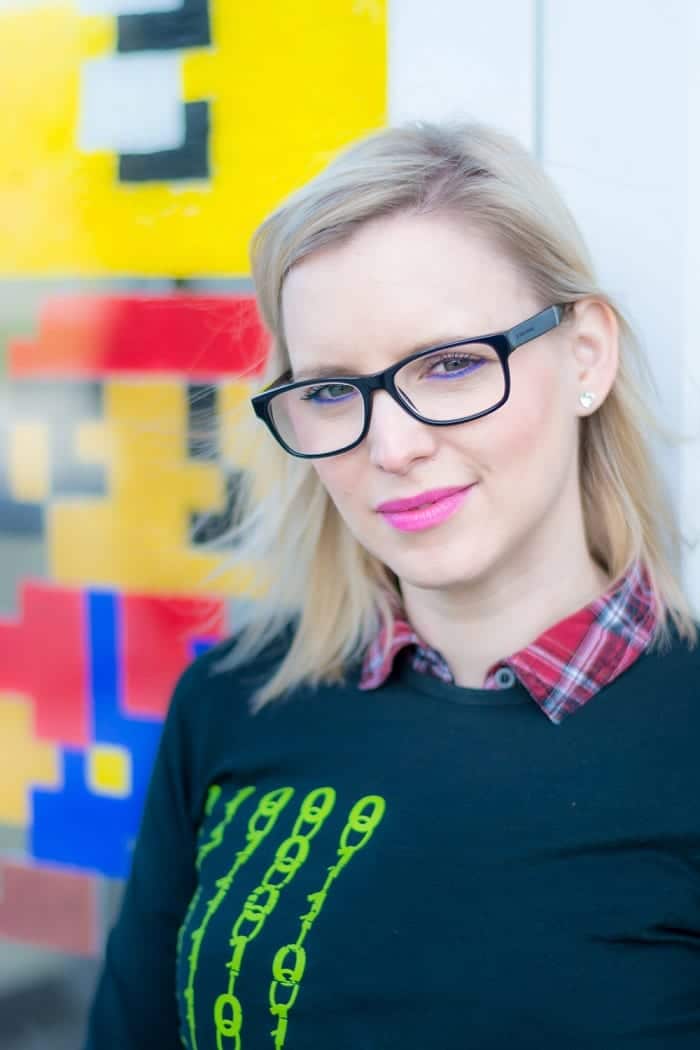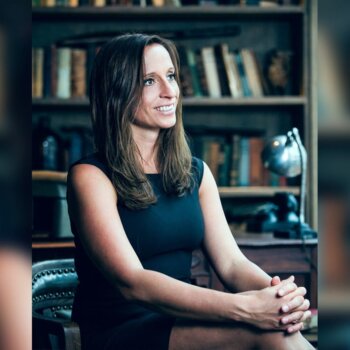(Women on Top in Tech is a series about Women Founders, CEOs, and Leaders in technology. It aims to amplify and bring to the fore diversity in leadership in technology.)
Today’s interview is with Marija Butkovic. Marija Butkovic is a business, PR and marketing consultant who has worked across a range of projects in different industry sectors, including legal, journalism, IoT, tech and fashion.
She is a co-founder of Kisha Smart Umbrella – a wearable tech startup behind the
world’s smartest fashion tech umbrella, and Women of Wearables – an initiative that
supports, connects and empowers women in wearable tech, fashion tech, IoT and
VR/AR. In both businesses, she also performs the role of a digital marketer and PR
strategist.
What makes you do what you do?
I always wanted to create an impact, not only for myself and people I’m close with but for a much bigger community. It took me some time to find a perfect project/idea that clicks all the boxes, but then again, nothing is perfect, it only has to be perfect for us, right? Entrepreneurship was a way to go for me. It allows me to be creative which is a must-have in anything I do, whilst bringing diversity in my everyday life. I would say that anyone who has the itch to challenge a status quo and change things, needs to try his or hers luck as an entrepreneur. I honestly believe that our future can and will be changed by entrepreneurs.
How did you rise in the industry you are in?
I started my professional journey as a lawyer and wasn’t involved in the tech industry at all for many years. In 2013 I became a startup mentor in one of Croatian startup incubators as well as a tech journalist. This allowed me to gradually switch from more traditional legal background to a tech one. As many entrepreneurs, I never felt strong enough to take a plunge and leave my day job for something less stable and risky. And then I moved to London (2014). My team and I set up our business Kisha and created world’s first smart fashion tech umbrella which got me into the world of the wearable tech industry. At that point, I was hooked and I knew my journey is definitely set to be entrepreneurial one. While working in Kisha, I soon realized how wearable tech industry suffers from a lack of women, not only female founders, but also product and UX designers, smart textile designers, and entrepreneurs in general. At this point, my co-founder Michelle Hua and I decided to change something which was the very reason we founded Women of Wearables (or just WoW). Women of Wearables aims to inspire, support and connect women in wearables, IoT, fashion tech and AR/VR industries. We are not only building a community of women in these industries and connecting them with each other, but we are also offering support, mentorship, workshops and visibility. So far, the interest has been overwhelming with women from India, US, UK, Canada, UK and many other countries in Europe and Asia.
Why did you take on this role/start this startup especially since this is perhaps a stretch or challenge for you (or viewed as one since you are not the usual leadership demographics)?
In full honesty, I somehow cannot imagine myself working only on one single project at the moment. 9-5 working hours was never my thing. Yes, this means that as a startup founder you have to be prepared for endless to-do lists, wearing multiple hats, as well as many sleepless nights, but it goes with the territory and I wouldn’t change it for anything.
Do you have a mentor that you look up to in your industries or did you look for one or how did that work?
I never got the chance to have one, but I do have people I admire too. An inspirational woman like Dr. Sue Black here in UK, who is an amazing woman and a role model; and Jenny Lee, one of the most respected and valuable self-made tech investors in China. And then, there are everyday people I meet in the tech community in London that are best examples how persistence and focus can get you anywhere you want.
Now as a leader how do you spot, develop, keep, grow and support your talent?
Do you consciously or unconsciously support diversity and why?
Consciously, as much as I can. Wearables industry is still men dominant sector, which is a general reflection of the male to female ratio in tech. Wearable tech teams are very often run by men, they hire male designers and developers, and implement technology that is most appealing to men. What this means is that ultimately they’re not addressing a huge chunk of their potential customers – women. This is why In Kisha, our Head of Design is a woman on purpose. Companies should be interested in building a community with an equal amount of female employees as male. That starts with the kind of company culture you foster. The other issue is that people don’t always know where to look to find female talent. Throughout the hiring process, companies need to be careful not to discriminate anyone, including men, but there are female tech groups that ought to be approached as part of the hiring strategy. Technology corporations and conference organizers have a duty to ensure there is a diverse range of speakers (including men, women and people from different backgrounds) to allow equality and opportunities for everyone. Although we are the women-in-tech organization, we welcome everyone into our community as participants and speakers, because this problem cannot be solved without everyone participating. We also need more female role models. You cannot be what you cannot see. So I’m hopeful that we won’t need as many women-in-tech groups in the future because gender equality will have been reached. Same goes for diversity in general.
What is your take on what it takes to be a great leader in your industry and as a general rule of thumb?
Be professional, kind and compassionate, and ask others for same. And stay humble.
Advice for others?
In 2017, Women of Wearables will deliver workshops in London and Manchester to girls between the ages of 11-18 to make their own wearable and e-textiles projects. This encourages more girls to enter STEM by equipping them with the skills they need to reduce the gender gap in the wearables industry. It also shows them how intangible skills such as coding can be converted to making a tangible product. Only by collaboration and education can we empower more women to participate in tech. Our aim is to create opportunities for women in this industry to connect with each other and help ensure not only their businesses and ideas succeed, but for the wearables industry to succeed.
To learn more about Women of Wearables, please see http://www.womenofwearables.com/.
I am a huge fan and cheerleader of Women Leaders — If you know of an AMAZING Woman Founder, CEO, Leader in Tech or you are one yourself — Write me here.
AMPLIFY Conscious Business Leadership with me.




























